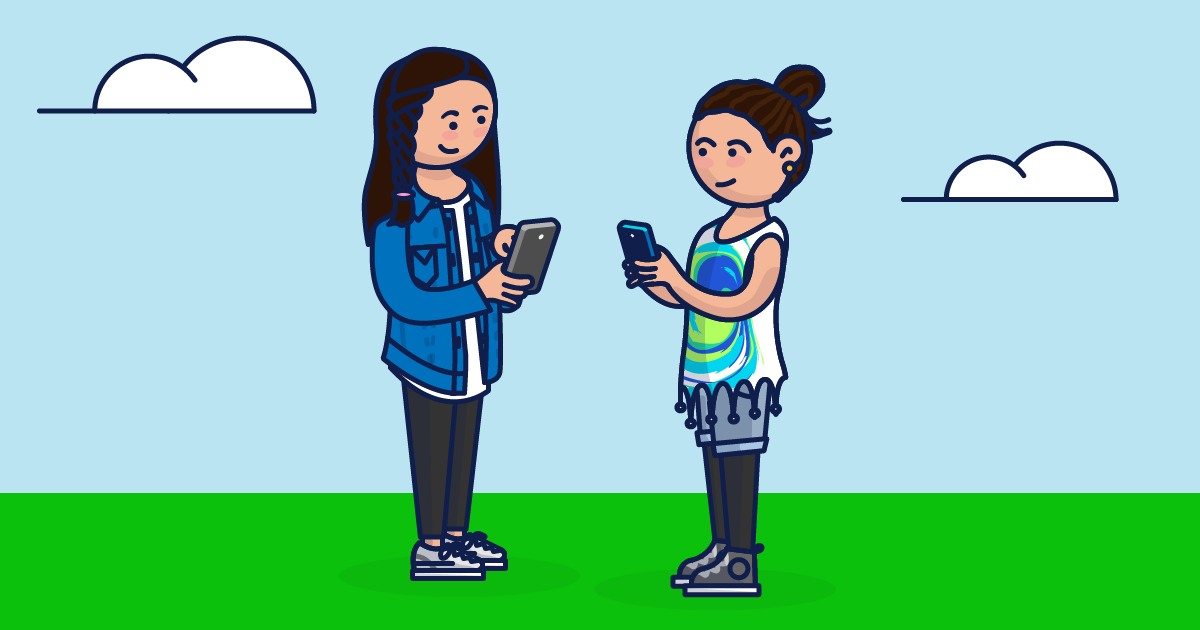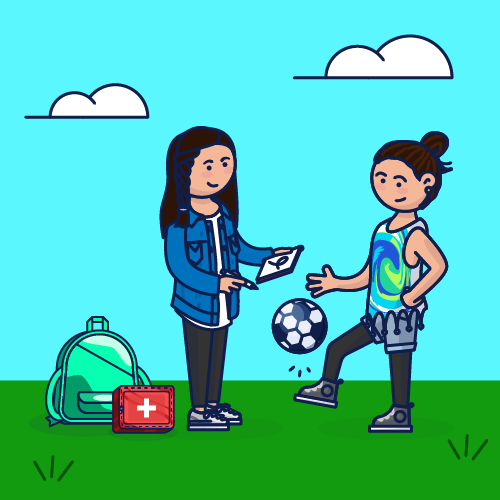
Right now, life-threatening food allergies affect one in every 13 children — this averages out to two in every classroom in the U.S. This has changed the way many kids grow up, but it’s also affected parents, too. We've created a video that shares one's mother's experience raising two girls with severe food allergies, and how she empowers them to live as independently as possible with the help of technology (including a cool app for kids with food allergies).
Raising kids with food allergies requires a slightly different approach to parenting, and handling technology is no exception. For example, one in five parents does not feel their child with a food allergy is safe while at school. In this post, we explain why Bark, the leading online account monitoring service for families, is an essential tool for families with food allergies.
1. Younger Kids With Phones Need More Protection
The average age that most kids get their phones is currently 10. However, many allergy parents tend to purchase phones earlier for their kids as a means of keeping in communication with them. Because the threat of an allergic reaction is ever present, the ability to call wherever and whenever can help both parents and kids feel safe when they’re apart.
However, although instant communication may be a boon in terms of allergy safety, it opens up the door to online risks. Younger children are in greater need of protection as they use their devices because they’re less mature. Bark’s monitoring service scans text messages and child-oriented apps like YouTube for inappropriate conversations or signs of sexual predators.

2. Food Allergies App Helps Prevent Bullying
Compared to children who do not have a medical condition, children with food allergies are twice as likely to be bullied. While this can happen in the classroom, the cafeteria, or on the playground, it’s more likely to happen online these days. Cyberbullying isn’t the bullying you remember from your childhood. It can happen any time and any place you can bring a phone — on the bus, at the dinner table, or at church. Kids can even receive nasty messages while sitting next to their parents on the couch.
Tragically, in many cases, food allergy children don’t tell their parents about the harassment they’re facing. This is a big deal because approximately one-third of all kids with food allergies are bullied specifically because of their allergies. With Bark, parents can receive notifications of online interactions where kids may be harassing their children. This will enable parents to have important conversations about what’s happening, and in some cases, intervene when needed.
3. Depression and Anxiety Can Often Go Unnoticed
Growing up with food allergies isn't always easy. Kids with food allergies can face higher rates of anxiety and depression. There’s stress about safety as they focus on staying safe and free of reactions, as well as emotional stress from dealing with a world in which they’re sometimes the odd kid out. Even seemingly harmless activities — like eating out a restaurant or going to a friend’s birthday party— can present risks and make kids feel left out. There’s no guarantee that there will be accommodations for their allergies. Sometimes, they’ll have to bring their own cupcakes to a class party.
Because of this, often the only signs that a child is struggling are buried deep in their phone as they text friends and post to social media. Parents could benefit from alerts about these issues as well as those centering around self-harm and suicidal ideation. Bark is an app that helps kids with food allergies protect themselves from these often overlooked problems.
Bark helps families manage and protect their children’s digital lives.



